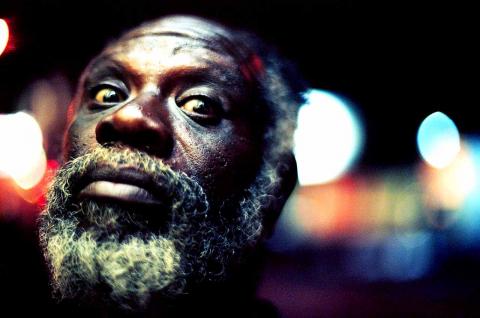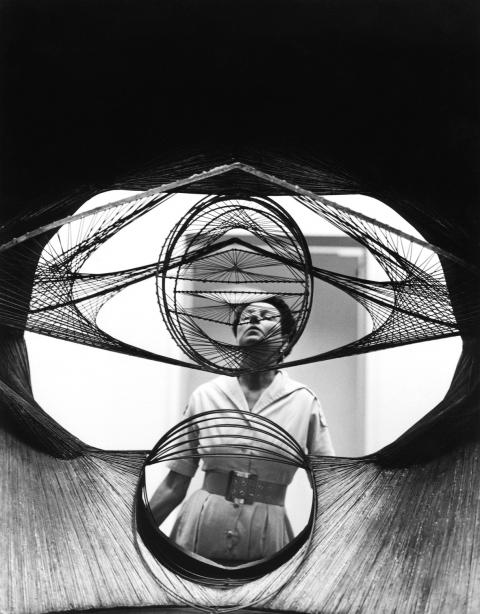When the Urban Nomad Film Fest (城市游牧影展) started out as a party among friends in 2002, few would expect it to last. Fifteen years after, the annual festival has grown to become an important cultural event, where people come to share, engage and have fun through a series of film screenings, discussions and parties.
As in the past, this year’s festival features some of the most hilarious and thought-provoking indie films, covering topics ranging from art and youth subcultures to activism and social justice.
HUMAN RIGHTS ACTIVISM

Photo courtesy of Urban Nomad Film Festival
US-based Chinese director Wang Nanfu’s (王男?) Hooligan Sparrow exposes government surveillance and corruption in China.
Following the screening on May 21, Wang will discuss the difficulties human rights activists in China face — government interrogation, harassment, imprisonment — as well as her own run-ins with authorities.
Act and activism go hand in hand in Art War, which follows four young Egyptian graffiti artists and musicians as they take part in the peaceful revolution during and after the 2011 Arab Spring.

Photo courtesy of Urban Nomad Film Festival
The documentary makes an engaging exploration of arts as a powerful means of resistance and conveying personal politics.
The film’s director Marco Wilms will attend the festival and discuss his work in post-screening Q&A sessions.
MUSIC FOR THE MASSES

Photos courtesy of Urban Nomad Film Festival
Activism aside, music enthusiasts also have plenty to choose from the festival’s lineup of over 60 feature, documentary, short and music video works from France, Germany, Canada, Cambodia, Taiwan, Hong Kong and the US.
Rubble Kings, for example, brings the audience back to the streets of New York under gang control in the late 1960s and early 1970s and tells the long forgotten story of how gang members decided to stop bloodshed by throwing block parties, which gave birth to hip-hop culture.
Fans of Motorhead, Rammstein, Anvil and the likes may want to check out Wacken: the Movie, which delivers an exciting portrait of Wacken Open Air, the biggest heavy-metal festival in the world.
Meanwhile, Mad Tiger zooms in on New York-based Peelander-Z, which describes itself as a “Japanese action comic punk band hailing from the Z area of Planet Peelander.”
On Sunday, several filmmakers and musicians from Germany, Taiwan and the UK will discuss the issue of documenting music.

This is the year that the demographic crisis will begin to impact people’s lives. This will create pressures on treatment and hiring of foreigners. Regardless of whatever technological breakthroughs happen, the real value will come from digesting and productively applying existing technologies in new and creative ways. INTRODUCING BASIC SERVICES BREAKDOWNS At some point soon, we will begin to witness a breakdown in basic services. Initially, it will be limited and sporadic, but the frequency and newsworthiness of the incidents will only continue to accelerate dramatically in the coming years. Here in central Taiwan, many basic services are severely understaffed, and

Jan. 5 to Jan. 11 Of the more than 3,000km of sugar railway that once criss-crossed central and southern Taiwan, just 16.1km remain in operation today. By the time Dafydd Fell began photographing the network in earnest in 1994, it was already well past its heyday. The system had been significantly cut back, leaving behind abandoned stations, rusting rolling stock and crumbling facilities. This reduction continued during the five years of his documentation, adding urgency to his task. As passenger services had already ceased by then, Fell had to wait for the sugarcane harvest season each year, which typically ran from

It is a soulful folk song, filled with feeling and history: A love-stricken young man tells God about his hopes and dreams of happiness. Generations of Uighurs, the Turkic ethnic minority in China’s Xinjiang region, have played it at parties and weddings. But today, if they download it, play it or share it online, they risk ending up in prison. Besh pede, a popular Uighur folk ballad, is among dozens of Uighur-language songs that have been deemed “problematic” by Xinjiang authorities, according to a recording of a meeting held by police and other local officials in the historic city of Kashgar in

It’s a good thing that 2025 is over. Yes, I fully expect we will look back on the year with nostalgia, once we have experienced this year and 2027. Traditionally at New Years much discourse is devoted to discussing what happened the previous year. Let’s have a look at what didn’t happen. Many bad things did not happen. The People’s Republic of China (PRC) did not attack Taiwan. We didn’t have a massive, destructive earthquake or drought. We didn’t have a major human pandemic. No widespread unemployment or other destructive social events. Nothing serious was done about Taiwan’s swelling birth rate catastrophe.